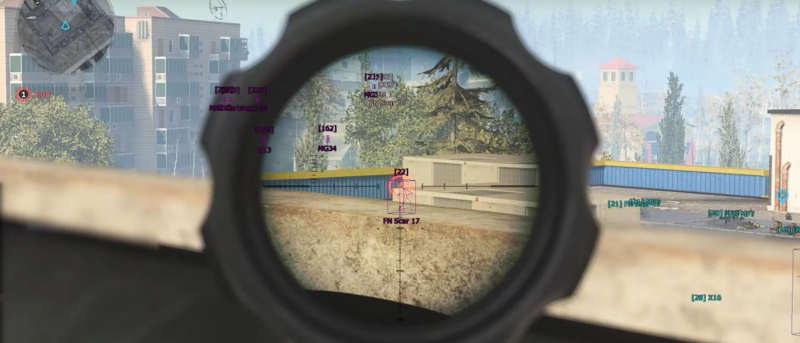Activision goes to court to stop Call of Duty cheat software
[ad_1]

Activision has filed a federal lawsuit against German cheat makers EngineOwning and associated individuals for “trafficking in technologies that circumvent or evade anti-cheat technologies used by Activision to protect the integrity of [Call of Duty] games.”
EngineOwning charges 13 euros per month or more for subscription access to individualized suites of cheating tools designed for Call of Duty games—and also Battlefield, Titanfall 2, and Star Wars Battlefront. The software promises abilities like automated aimbots, auto-firing triggerbots, “2D radar” that shows enemy locations on the HUD, and “3D radar” that can track and display opposing players even behind cover.
EO promises its software is undetectable by automated tools, including Activision’s recently launched Ricochet kernel-level anti-cheat tools. The software also includes built-in tools to make cheating less obvious to human moderators and recording software, making users “look like a legit player.” The company separately sells “hardware ID spoofer” software that promises to get around hardware-based bans in Call of Duty and other games.
In its lawsuit, Activision says these tools have been used “thousands of times by players in the United States,” earning EngineOwning “hundreds of thousands of dollars or more.” Thus, the software has led to “at least tens of thousands of breaches” of the terms of use players must agree to before playing online.
In addition to the alleged DMCA violations that are pretty standard in this type of lawsuit, Activision argues that EngineOwning is guilty of “intentional interference with contractual relations.” By helping Call of Duty players break the game’s terms of use (and avoid detection by Activision’s moderation tools), “Defendants’ goal it to ensure that their customers continue to receive the benefits of their contracts with Activision while they simultaneously engage in continuing breaches of their obligations under these contracts,” Activision argues.
Activision says it has tried to contact EngineOwning creator Valentin Rick about ceasing operations multiple times in recent years. Rick allegedly told Activision that he sold the site to new ownership, and a thread on the EO forums claims the site was relaunched with “refreshed management” in late 2018. But Activision says that “Rick has never provided evidence that such a sale took place,” and the company believes that “Rick has continued to manage and operate EO and the EO Website.” EngineOwning representatives haven’t responded to a request for comment from Ars Technica.
Activision is seeking a court order halting the distribution of EngineOwning’s products, statutory and punitive damages, and the refunding of “Defendants’ unlawful proceeds” from its software sales.
[ad_2]
Source link




